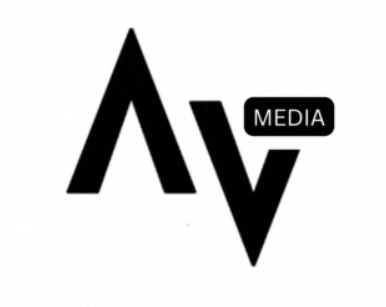Introduction
Embarking on the journey towards financial freedom can often seem like navigating through a labyrinth without a map. However, with the right budgeting strategies, everyone, from college students to retirees, can find their way to a secure financial future. Budgeting is not merely about restricting yourself; it’s about understanding and managing your money to achieve your dreams and goals. In 2024, with the ever-changing economic landscape, it’s more crucial than ever to have a solid financial plan in place. Whether you’re aiming to pay off debt, save for a house, or ensure a comfortable retirement, these five budgeting strategies will help guide you toward financial freedom. By saving diligently, investing wisely, and managing your money efficiently, you’re setting the foundation for a prosperous and secure future. Let’s explore how you can transform your financial life and unlock the door to financial freedom in 2024.
Importance of Budgeting for Financial Freedom
Achieving financial freedom is a common goal for many, but it requires a clear strategy and diligent money management. At its core, financial freedom means having enough resources to make choices that allow you to live your desired lifestyle without worrying about financial constraints. Let’s delve into why budgeting is such a crucial step toward this aim.
Definition of Financial Freedom
Financial freedom occurs when you have enough savings, investments, and cash on hand to afford the lifestyle you desire for yourself and your family. It’s about being in control of your finances rather than being controlled by them. This level of freedom allows you to make life decisions without being overly stressed about the financial impact because you’re prepared for any situation.
Benefits of Budgeting
Budgeting might seem like an elementary step, but its benefits cannot be overstressed. It is the foundation upon which financial freedom is built. Budgeting helps you:
– Understand Your Financial Picture: By listing your income and expenses, you get a clear overview of your financial situation, identifying where your money goes each month.
– Avoid Overspending: It’s easy to overspend when you don’t have a plan. A budget keeps you within your means so that you can avoid debt.
– Set Priorities: With a budget, you can prioritize your spending according to what matters most to you and adjust as your financial situation or goals change.
– Plan for the Future: A budget allows you to earmark funds for future goals, whether it’s saving for a home, retirement, or a vacation.
5 Budgeting Strategies for Financial Freedom in 2024
To embark on the journey to financial freedom, here are five proven budgeting strategies to implement in 2024.
Setting SMART Financial Goals
SMART—Specific, Measurable, Achievable, Relevant, Time-bound—goals form the backbone of effective financial planning. Whether it’s saving for a dream vacation, buying a house, or preparing for retirement, your financial targets should be clear and realistic. Write them down, review them regularly, and adjust your budget to help meet these goals. Remember, the satisfaction of achieving small goals can motivate you toward bigger achievements.
Creating and Managing a Budget
A well-structured budget is your roadmap to financial freedom. Here’s how to create one:
- Calculate your income: Know exactly how much money you have coming in every month after taxes.
- List your expenses: Categorize your expenses into necessities (rent, utilities, groceries) and wants (dining out, entertainment).
- Set spending limits: Allocate specific amounts to each category, prioritizing essentials and savings.
- Adjust as needed: Life changes, and so should your budget. Regularly review and adjust your budget to stay on track.
Use apps or spreadsheets to make managing your budget easier and more effective.
Tracking Expenses and Identifying Areas for Savings
Knowing where your money goes is crucial. For a month, track every dollar you spend, no matter how small. This eye-opening exercise can reveal unnecessary expenses you can cut, such as unused subscriptions or frequent takeout meals. Redirecting these funds toward your goals can significantly accelerate your journey to financial freedom.
Building an Emergency Fund
An emergency fund is your financial safety net designed to cover unexpected expenses like medical bills or car repairs without derailing your financial plan. Aim to save at least three to six months’ worth of living expenses. Start small if necessary and build gradually. Depositing this fund in a high-yield savings account can help your money grow while being easily accessible when needed.
Investing Wisely for the Future
Saving alone may not be enough to achieve financial freedom; investing plays a key role. Investing can help your money grow over time, thanks to the power of compound interest. Consider diversifying your investments across different assets, such as stocks, bonds, mutual funds, or real estate, to minimize risk and maximize potential returns. If you’re new to investing, seeking advice from a financial advisor can be a wise decision.
In conclusion, achieving financial freedom is a journey that requires patience, discipline, and strategic planning. By understanding the importance of budgeting and implementing these five strategies, you can make informed decisions with your money, paving the way for a secure and prosperous future. Start today, and you’ll be amazed at what you can achieve by 2024.
Implementing Budgeting Strategies into Your Daily Life
Taking control of your finances and working towards financial freedom in 2024 is more achievable than you might think. The journey starts with establishing a budget and implementing strategies that fit your lifestyle. However, knowing the strategies and applying them consistently are two different things. Let’s dive into how you can integrate these budgeting strategies into your daily routine and ensure you stick to them for the long haul.
Tips for Sticking to Your Budget
Sticking to a budget can be challenging, especially in the beginning or during times of unexpected expenses. However, the following tips can help you remain committed to your financial goals:
– Set Realistic Goals: Your budgeting goals should be achievable. Setting unrealistic targets can lead to frustration and might tempt you to give up. Break down your goals into smaller, manageable steps that you can track and celebrate achieving.
– Track Your Spending: Keep a close eye on where your money is going. Sometimes, small purchases add up without us realizing. By tracking your spending, you can identify areas where you can cut back.
– Use the Envelope System: This is a traditional but effective method, especially for managing variable expenses like groceries and entertainment. Allocate a set amount of cash in envelopes for different spending categories. When the cash is gone, that’s it for the month.
– Adjust as Necessary: Life happens, and your budget should be flexible enough to accommodate changes. Review and adjust your budget regularly to reflect changes in your income or expenses.
– Reward Yourself: Setting aside a small portion of your budget for treats or rewards for hitting your financial targets can help keep you motivated. Just ensure these rewards don’t derail your overall goals.
Tools and Apps for Effective Money Management
In today’s digital age, plenty of tools and apps can help you manage your finances more efficiently. Here are some that might make sticking to your budget easier:
– Budgeting Apps: Apps like Mint, You Need a Budget (YNAB), and PocketGuard can connect to your bank accounts and help you track your spending against your budget in real time.
– Expense Trackers: If you’re not comfortable connecting your bank accounts, simple expense tracking apps allow you to manually enter your transactions and monitor your spending habits.
– Investment Apps: Platforms like Robinhood or Acorns can help you start investing with small amounts of money. Remember, part of achieving financial freedom is growing your wealth.
– Debt Management Tools: Apps like Unbury.Me provide strategies for paying down debt more efficiently, which is crucial for freeing up more of your income for saving and investing.
By incorporating these tools into your financial routine, you can take some of the manual labor out of managing your budget and focus more on making informed decisions that align with your financial freedom goals. Remember, the key to successful budgeting is consistency and a willingness to adapt as your financial situation changes. With these strategies and tools at your disposal, you’ll be well on your way to achieving financial freedom in 2024 and beyond.
Conclusion: Achieving Financial Freedom Through Smart Budgeting
Achieving financial freedom isn’t just a pipe dream—it’s fully possible with the right techniques and dedication. By integrating the five budgeting strategies we’ve discussed, you’re not just planning for 2024; you’re setting up a foundation that will benefit you for years to come. Remember, financial freedom is about more than just having enough money to cover your expenses. It’s about creating a life where money serves you, not the other way around.
– Stick to Your Plan, but Be Flexible: Consistency is key, but don’t be afraid to adjust your budget as your life changes. Life is unpredictable, and flexibility can keep you on track even when the unexpected happens.
– Review and Adjust Regularly: Periodic reviews of your financial goals and budget allow you to adapt to changes and stay focused on your ultimate objective of financial freedom.
– Stay Informed and Educated: Continue learning about personal finance and money management. Knowledge is power, and the more you know, the better decisions you’ll make.
By following these steps, monitoring your progress, and maintaining a positive attitude towards money and budgeting, achieving financial freedom in 2024 and beyond is entirely within your reach. The key is to start now, stay committed, and never lose sight of your financial goals. With smart budgeting, a little bit of patience, and a lot of discipline, you’ll find that financial freedom isn’t just a dream—it’s your reality.





















